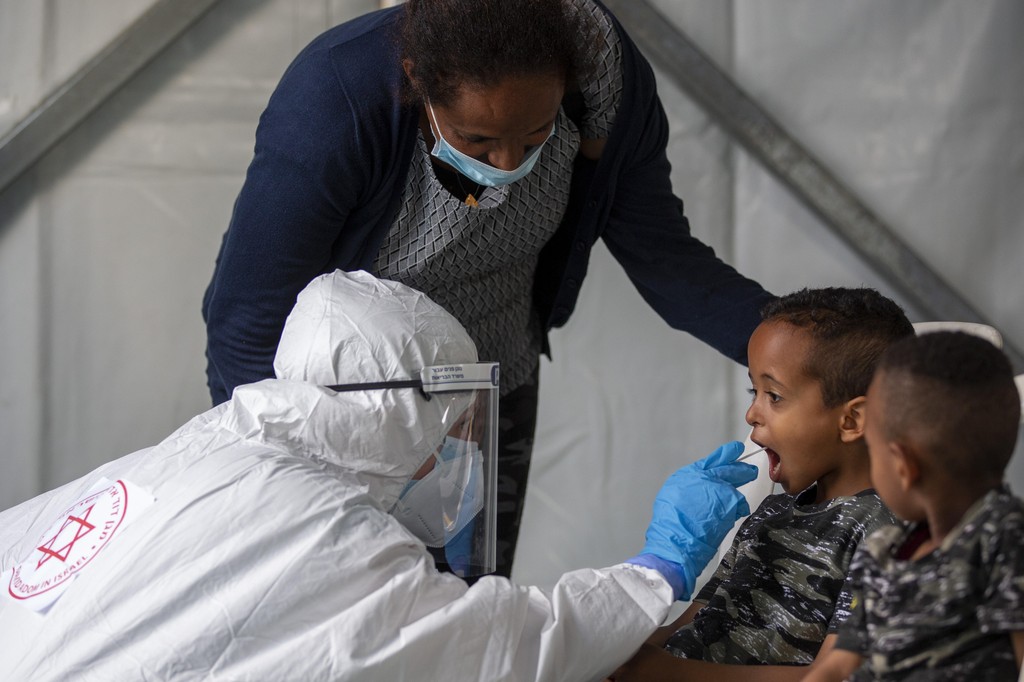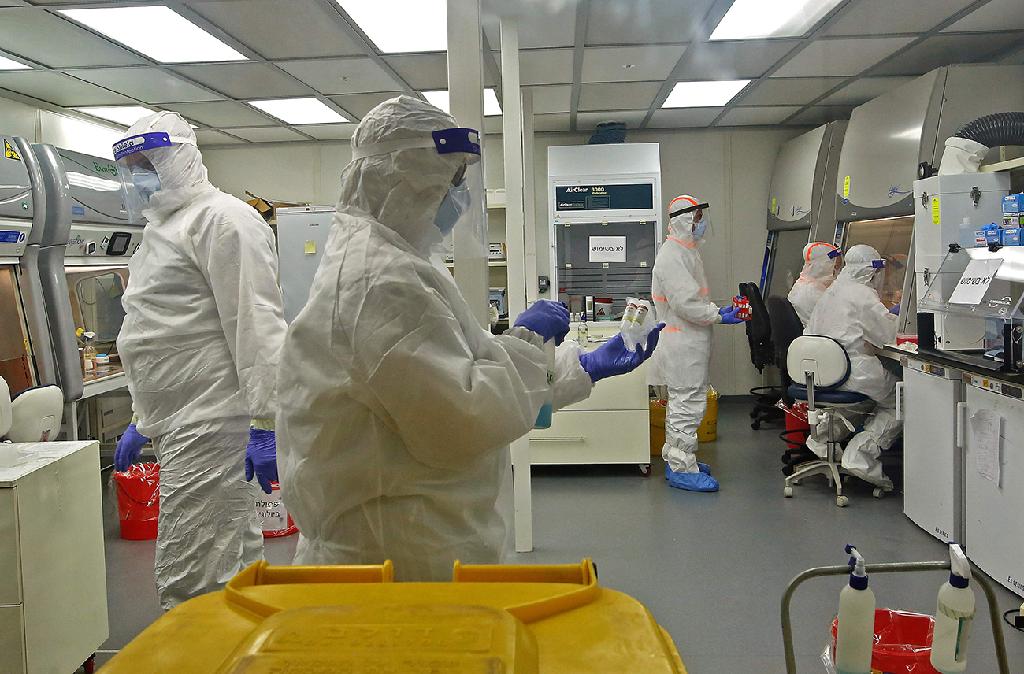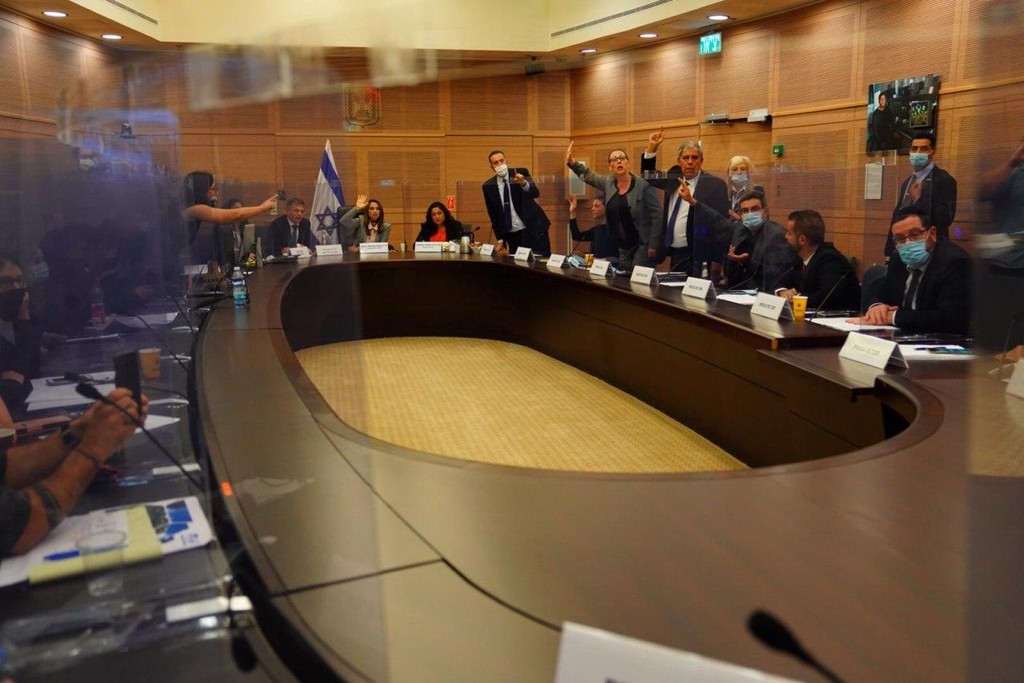Getting your Trinity Audio player ready...
We must admit that Israel has never before seen such a period of great uncertainty. Ask 10 doctors about the coronavirus pandemic, and you will likely get 10 different opinions.
How does one catch it? We only partially know. Where do most contract it? There's not much data on the matter besides a couple of charts, but the Health Ministry claims that 67% of coronavirus patients contracted it at home.
7 View gallery


A child is tested for coronavirus by a healthcare worker at testing center for migrants in Tel Aviv
(Photo: AP)
What happens to those who recover? How many report long-lasting effects of the disease? Had they been vaccinated for other diseases in the past? Nothing is clear.
7 View gallery


Knesset Coronavirus Committee Chairwoman MK Yifat Shaha-Biton
(Photo: Knesset Channel)
At a Knesset coronavirus committee debate last week, panel chair LIkud MK Yifat Shasha-Biton said the Health Ministry could not provide her with sufficient data on coronavirus infections at public swimming pools and gyms, before declining to follow through a government order to close them.
Her actions prompted a tirade from coalition head and fellow Likud lawmaker Miki Zohar. And before we could get over that, Zohar was at it again on Monday, as he clashed with Foreign Minister Israel Katz, also of Likud, as he demanded greater compensation for business owners.
"It's for your cousin who runs an event hall," Katz replied, leading Zohar to call on Prime Minister Benjamin Netanyahu to fire the finance minister.
We wanted a debate by our elected officials, instead we got an exchange of insults.
7 View gallery


Finance Minister Israel Katz and Coalition Chairman MK Miki Zohar
(Photo: Knesset Channel)
My heart goes out to all those reporters who do holy work, trying to gather as much data as possible to give the public the full picture - despite their lack of expertise in the field.
Their jobs are not easy for whatever was true yesterday may not be true today.
Let's not forget those who yell at the top of their lungs that the scourge is not so bad and that lockdowns, fear and isolation actually do more harm than good.
Now they are joined by experts brandishing graphs and projections even as the days go by and this elusive virus is again proving it does not heed such props.
Clearly there is a lot of disinformation in this age of social media, but the problem is that even experts can’t seem to agree.
One Israeli professor presented a very convincing report explaining that this virus was not genetically engineered, while a French Nobel laureate has ardently claimed the opposite.
For each disagreement settled, countless more pop up, all with their own data and experts that contradict one another.
What about medicines? U.S. President Donald Trump recommended the old malaria drug hydroxychloroquine. Israel jumped on board and purchased 10 tonnes of this stuff. Does it work? Seems not.
The days, weeks, and months pass and still nothing seems certain.
Every now and then some new magic cure appears. Vitamin D? Possibly. A drug that dissolves fats in the lungs? Perhaps.
Something among these endless suggestions must work, unless the virus is able to outsmart the theory of probability too.
This is the difference between what the government suggests and what Knesset is willing to approve.
Shasha-Biton's demand for sufficient data sounds great, but there is no data, neither in Israel nor anywhere else in the world.
A general lockdown had helped but different methods could have probably produced similar results without damaging the economy so much.
In the current situation, it is alright to voice our criticism and demand information, but we can't put the government on the front lines of the coronavirus war and question its authority at the same time.
If we keep foiling the government's decisions due to "lack of data," we may as well just cancel all its decisions.
So allow me not to get too thrilled about Shasha-Biton's little "display of courage" because dealing with this deceptive virus is not just an ordinary case of Knesset oversight over government decisions.
Without authority, it's a bit hard to hold someone accountable. At this stage of uncertainty, trial and error are an integral part of the picture.
But one thing we cannot and must not do is hold the government responsible while invalidating its decisions.





